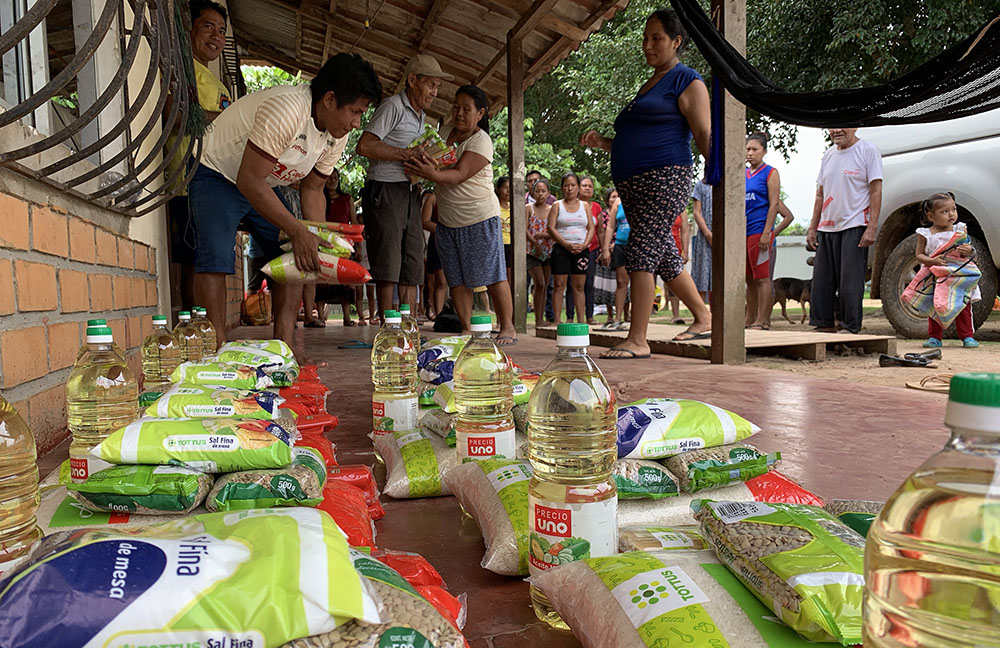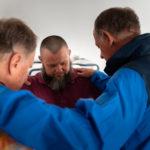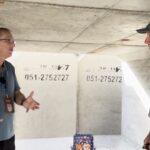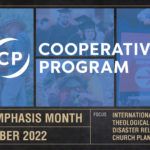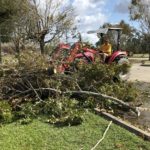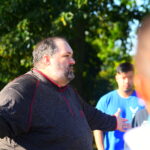
ALPHARETTA, Ga. (BP) – Send Relief began 2020 with the historic announcement that the North American Mission Board (NAMB) and the International Mission Board (IMB) would begin coordinating compassion ministry efforts. That news was followed shortly by word that Bryant Wright, longtime pastor of Johnson Ferry Baptist Church in Atlanta and a past President of the Southern Baptist Convention, would lead the effort.
A few weeks after those announcements in February, the COVID-19 pandemic began to envelop the globe in a health and economic crisis.
Immediately, doors opened up for ministry as needs rapidly increased in North America and around the world. Send Relief, through various partners around the world, conducted more than 700 projects in nearly 10,000 communities, and the work helped 1.4 million people.
Outside North America, half a million people heard the Gospel with more than 15,000 people coming to faith in Christ, which led to the creation of more than 380 new churches.
“In my first week as president, COVID shut down the world,” Wright said. “As we focused on building out the Send Relief team, I was amazed by what God did during the pandemic. Even though the whole world was paralyzed, a lot of great things have still happened on the field, most of all, the number of people who came to Christ.”
Wright said Send Relief has been a natural continuation of his ministry.
“Global missions was the heartbeat of Johnson Ferry, and the highlight of pastoring that church,” Wright said. “So, when IMB president Paul Chitwood reached out to me about an opportunity to serve in global compassion ministry, I was excited.”
So right away, Send Relief became a worldwide ministry, utilizing the partnerships and ministries NAMB had developed in North America as well as those cultivated through IMB to serve people in need and bring the Gospel to them.
COVID-19 Response
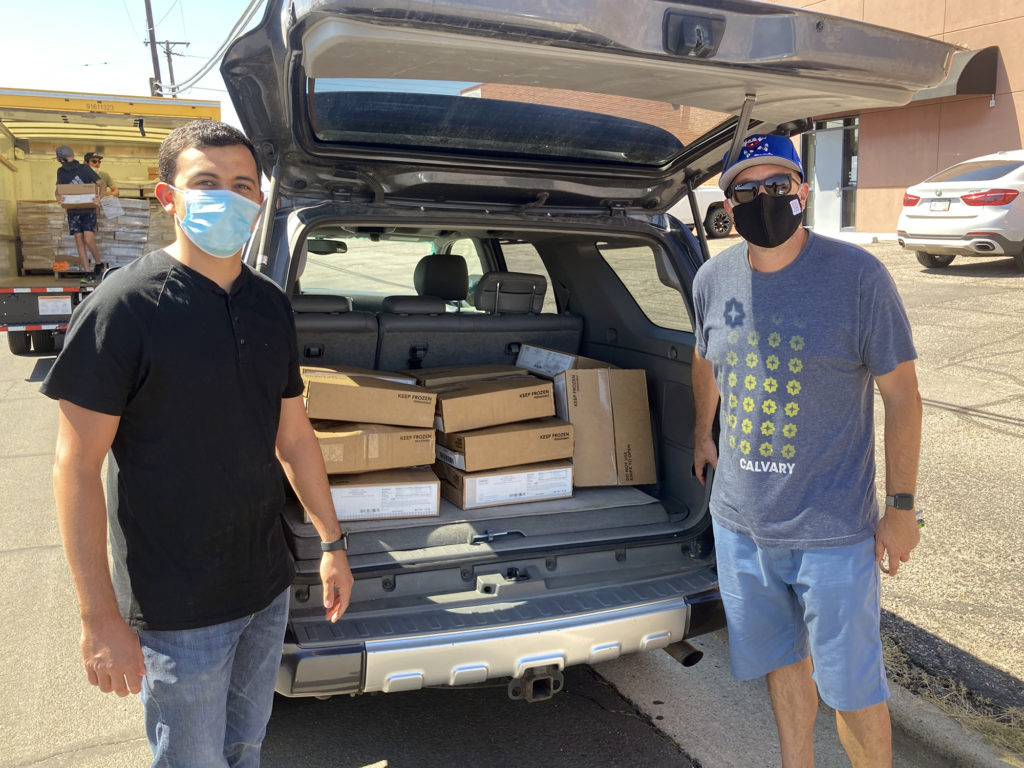
Send Relief was promptly tested as ministry partners on multiple continents served the vulnerable who were most affected by the coronavirus pandemic. When personal protective equipment (PPE) started becoming scarce in the early weeks of COVID-19, Send Relief and Southern Baptist Disaster Relief (SBDR) sent more than 228,000 sets of PPE to medical professionals and first responders serving on the front lines.
Send Relief keys in on five focus areas of ministry: strengthening communities, caring for refugees, protecting children and families, fighting human trafficking and responding to crisis.
The aim of Send Relief compassion ministry is to do more than provide handouts. Send Relief missionaries and ministry partners strive to help those in need make lasting change, all while bringing the eternal hope of the Gospel.
During the pandemic, part of that effort involved providing education about COVID-19 to remote areas that had little information about the virus. In the immediate aftermath of the economic upheaval, missionaries and ministry partners provided food in North America, in places like New Mexico, Puerto Rico and several other locations throughout the U.S., as well as in remote parts of the world.
Send Relief also sought to empower people with long-term solutions, such as building a rice mill or teaching farmers to plant, harvest and sell tea. For one ministry that has been helping to get needed medicine to remote people groups, their efforts in creating portable pharmacies in South America could not have been more timely.
Where possible, Send Relief also encouraged people to view foster care as an opportunity to share the Gospel and to care for the elderly, especially during COVID-19.
The travel restrictions implemented due the pandemic prevented many mission trips in 2020, but the legacy of GenSend’s development of young adults to live on mission was felt through stories like ICU nurse Lexie Green’s.
New Send Relief Ministry Centers launched
One of Send Relief’s key strategies in North America is to create Ministry Centers where Southern Baptists can serve alongside missionaries and learn about best practices in compassion ministry so that they can implement similar outreach strategies in their own communities.
The number of ministry centers grew to 12, including new centers in South Dakota, Puerto Rico and Valdosta, Ga. In 2021, Send Relief expects the total to grow to 20 ministry centers across the United States.
Crisis Response, historic hurricane season
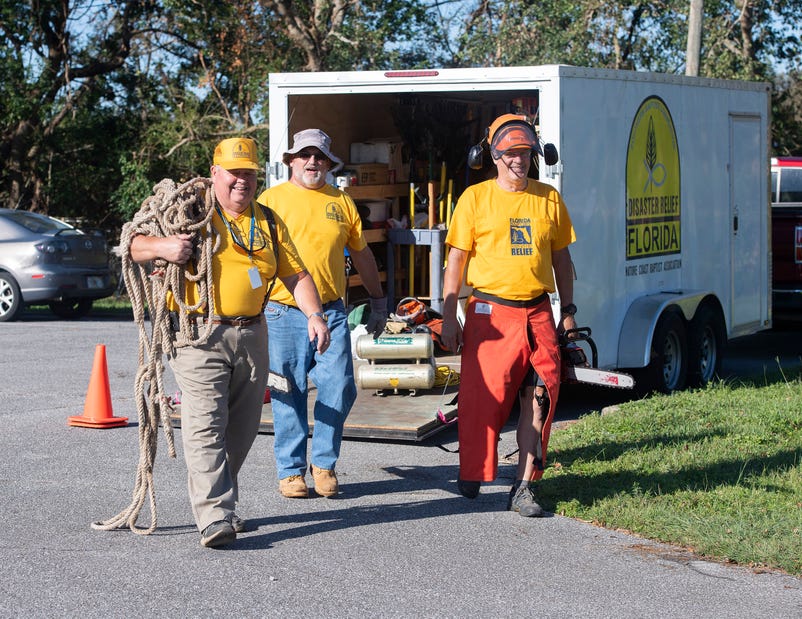
If not for the global pandemic, 2020 may have been remembered in history as the year of the hurricane, with a record 30 named storms and 13 hurricanes, six of which developed into major hurricanes. Storms battered the Gulf Coast of the United States, including Hurricanes Laura, Sally, Delta and Zeta. Send Relief delivered supplies to assist several SBDR partners in their disaster relief efforts.
Central America also endured a battering from tropical storms and hurricanes, and typhoons in the Pacific also brought extreme damage to Asian nations as well.
The multiple hurricanes were not the only responses carried out by SBDR. Wildfires ravaged the western United States, including California, Colorado and the Northwest.
In total, SBDR conducted 7,975 recovery jobs in the United States, prepared more than 750,000 meals and distributed more than 10.4 million pounds of food in response to the pandemic. Volunteers presented the gospel more than 6,800 times and reported 875 professions of faith.
On Aug. 4, a devastating explosion rocked Beirut, Lebanon, killing hundreds of people, injuring thousands more and destroying or damaging millions of dollars’ worth of property. Send Relief prepared a response, and ministry partners on the ground shared their experiences in the aftermath of the blast.
For more information and details about how you can serve through Send Relief, visit sendrelief.org.
